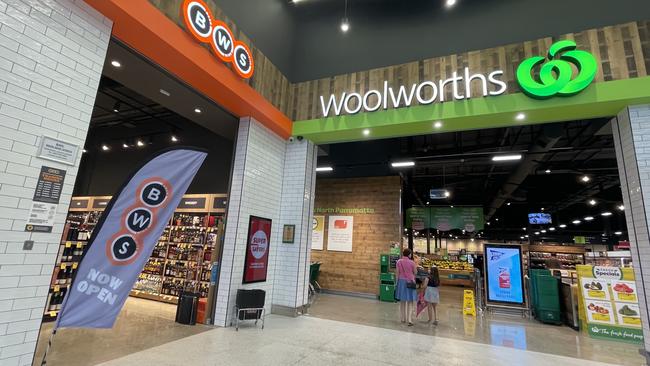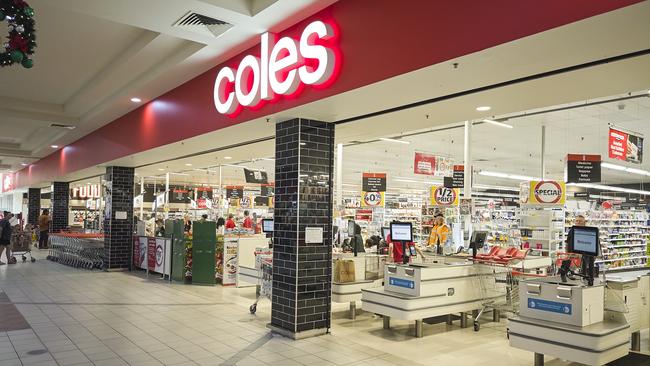
Already facing a mixed outlook from sharemarket forecasters – and a nosedive in consumer sentiment – supermarket stocks open the year facing a string of separate inquiries. Already the Woolworths group – the largest supermarket stock – faces calls for a boycott from Opposition leader Peter Dutton.
At a stroke these widely held stocks have replaced the banks as “public enemy number one”, although at face value they do not carry the same justification for political outrage.
In common with bank stocks, supermarket stocks are seen as “defensive”. That is they are solid, dividend paying companies with market dominance where mum and dad shareholders do not expect surprises.
But 2024 has offered nothing but negative surprises for supermarket shareholders, who can only watch from the sidelines as an unwanted political drama unfolds.
The local sharemarket has endured a sell-off since reopening after Christmas, the wider ASX is down about 2.7 per cent year-to-date.
But Coles is down nearly 4 per cent and Woolworths is down by nearly 5 per cent.
Woolworths has a market capitalisation of $44bn and has more than 350,000 shareholders, Coles has a market capitalisation of $22bn and more than 400,000 shareholders – with many overlapping shareholders between the two groups.
Both stocks are expected to see profit margins come under pressure this year as the Australian consumer pulls back. Consumer sentiment figures released last week showed the worst reading since the GFC. Even within consumer staples where people must routinely do grocery shopping, a gradual shift online means margins are also tightening.
It is also expected that supermarket profits will be squeezed by wage inflation, where the enormous workforce inside the industry is seeing wage growth (at 6 per cent) which is higher than food sales growth (which is 5 per cent.).

This week the Prime Minister, Anthony Albanese, reiterated his aim to push for lower prices at the big supermarket groups, suggesting the Australian Competition and Consumer Commission could take further action in the sector.
According to the Prime Minister, a key cost of living measure will be “making sure that customers when they go to the checkout in the supermarket, can get things at the cheapest possible price”.
Meanwhile, Mr Dutton’s call for a boycott of Woolworths over the supermarket group’s decision to stop selling Australia Day-themed goods has split investors, ensuring shareholder groups are slow to enter the debate.
Asked directly if the Woolworths boycott would hit small shareholders, the CEO of the Australian Shareholders Association, Rachel Waterhouse, refused to comment on the matter citing “varied opinions on what is best for them and what the company should do”.
As adviser Luis M Garcia wrote in The Australian: “At this rate, it will be a minor miracle if supermarket CEOs have time to run their businesses.”
While consumer and farmer representative groups have targeted supermarket pricing suggesting the softening prices for key food items have not filtered through to consumers – supermarket executives say profit margins have remained steady at around 2.6 per cent.
As defensive stocks, supermarkets should be able to produce solid returns in a slowing economy – the Australian GDP growth could be cut to 1 per cent this year from 2 per cent But stockbrokers are clearly unconvinced by the sector’s numbers to date. There is no clear consensus on both Coles and Woolworths, with a mixed range of recommendations in the market. Woolworths has the broadest range of views with broker Ord Minnett suggesting it is a “sell” but both Citi and UBS retaining a “buy” recommendation.
The inquiries impacting the supermarkets are: a Senate committee investigating supermarket prices; a potential ACCC Inquiry exploring measures at the request of the government; and an ACTU-backed inquiry into industry prices that includes supermarkets to be run by former ACCC chief Allan Fels.






More than half a million shareholders in Australian supermarket stocks risk becoming collateral damage as politicians turn up the heat on a sector that has been the backbone of investor share portfolios.